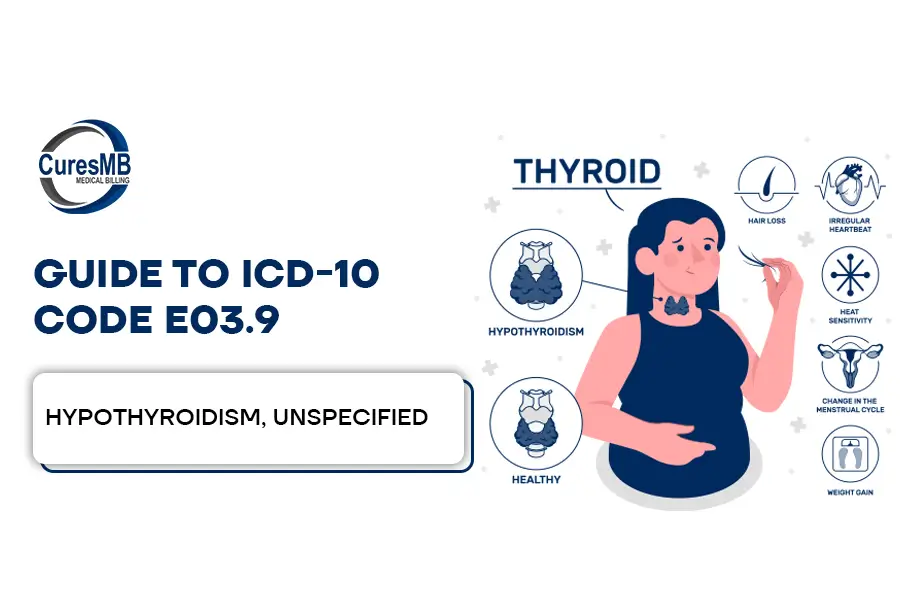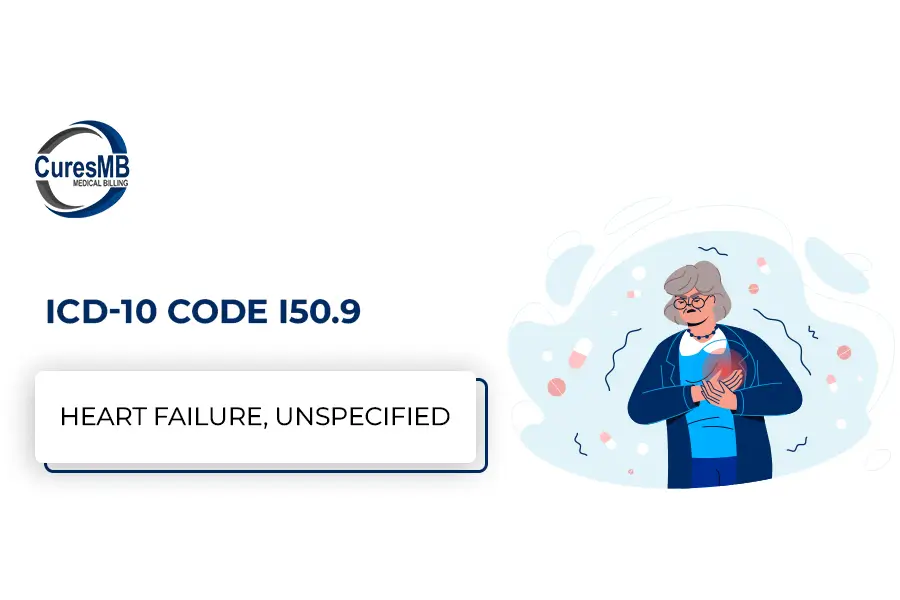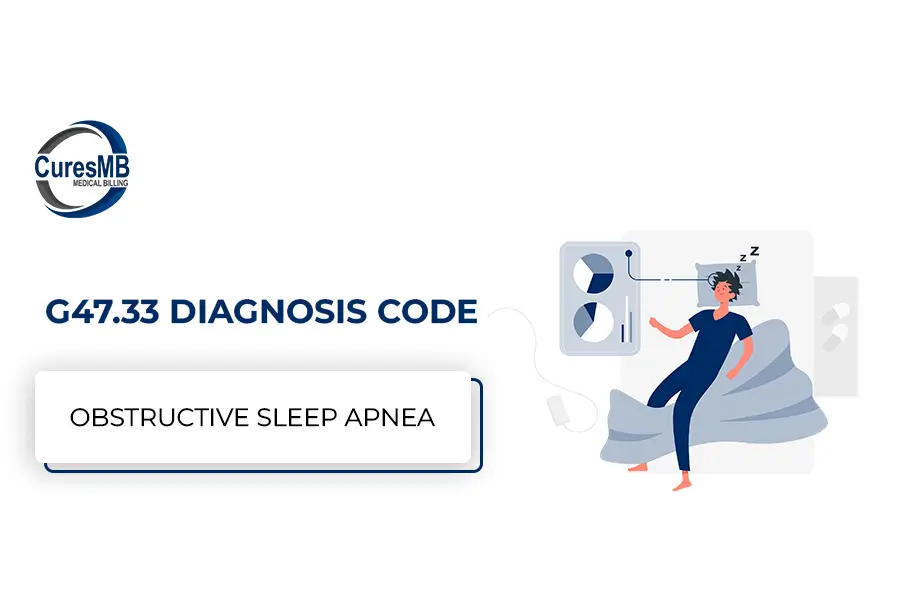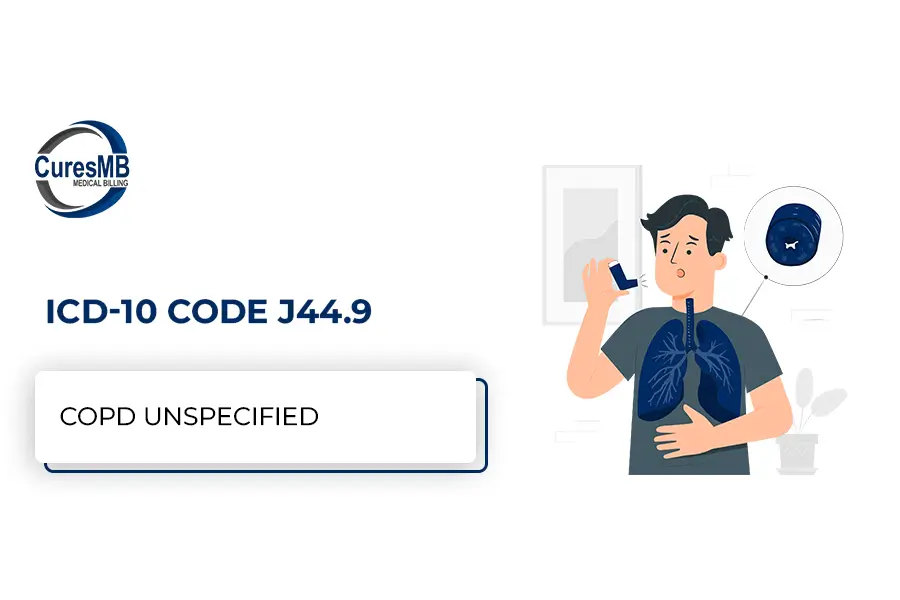
ICD-10 Code E03.9 – 2025 Guide to Unspecified Hypothyroidism
ICD-10 code E03.9 is a billable specific ICD-10-CM code used in the American ICD-10-CM version to classify unspecified hypothyroidism under endocrine, nutritional, and metabolic diseases.
This 2025 ICD-10-CM diagnosis code is essential for diagnosis for reimbursement purposes, especially when the underlying cause of hypothyroidism is unclear. The code applies across international versions of ICD-10 and is included in the 2025 edition of ICD-10-CM.
The transition from ICD-9 code 244.9 to ICD-10 code E03.9 highlights the evolution of medical coding systems to enhance precision in documentation and billing.
Hypothyroidism is a disorder in which the thyroid gland is underactive, leading to reduced production of thyroid hormones. These hormones play an important role in regulating metabolism, energy production, and overall body functions.
Common symptoms include weakness, weight gain, depression, cold intolerance, and hair thinning.
The primary billable ICD-10 code for hypothyroidism is E03.9. This code is used in cases where:
While E03.9 is widely accepted, using more specific codes when possible is recommended. Precision in coding can streamline insurance claims, enhance reimbursement processes, and ensure accurate disease classification.
Different forms of hypothyroidism have specific ICD-10 codes. Below is a detailed overview:
Subclinical Hypothyroidism
Acquired Hypothyroidism
Hypothyroidism Due to Thyroidectomy
Hashimoto’s Thyroiditis


Using the appropriate ICD-10 codes is crucial for effective billing and accurate representation of a patient’s condition. To maximize reimbursement and avoid claim rejections:
Modifiers may include:
ICD-10 code E03.9 is an essential tool for healthcare providers managing cases of unspecified hypothyroidism. By understanding the various types of hypothyroidism and their respective codes, practitioners can ensure accurate diagnosis, improve medical billing efficiency, and provide better patient care.
For acquired hypothyroidism, always consider using E03.4 or other specific codes to reflect the patient’s condition accurately.
E03.9 is the ICD-10 code assigned to unspecified hypothyroidism — a condition characterized by reduced production of thyroid hormones due to an unidentified or undocumented underlying cause in medical documentation.
This code is typically used when the provider confirms hypothyroidism but doesn’t specify whether it’s congenital, acquired, autoimmune (like Hashimoto’s), or drug-induced.
Patients treat with E03.9 may expression general indications of hypothyroidism such as:
Since the code is for unspecified hypothyroidism, further testing may be needed to identify the exact type and cause.
The ICD-10 system includes many specific hypothyroidism codes:
E03.9 is used when the medical record absences the aspect to al
The ICD-10 system includes many specific hypothyroidism codes:
E03.9 is used when the medical record absences the aspect to allocate a more specific code. It should ideally be used as a temporary or default diagnosis until more information is obtainedlocate a more specific code. It should ideally be used as a temporary or default diagnosis until more information is obtained
Yes, E03.9 is a legal and fully billable identification code under the ICD-10 classification system.
It can be used on claims for services like:
However, providers are encouraged to update documentation if more specific hypothyroidism information becomes available during follow-up.
Yes. For insurance coverage and claim approval, documentation should support:
Payers often require evidence of testing or ongoing treatment to consider E03.9 as a medically necessary diagnosis.
Medical coders should assign E03.9 only when:
Important: If lab results, medication history, or notes point to a specific cause, coders should use a more detailed ICD-10 code instead.
When billing E03.9, common CPT codes may include:
Always ensure documentation supports both the diagnosis and procedure performed.
Discover Cures Medical Billing Services Across Different States
FL
NY
ML
CO
NJ
AZ
TX
CA
WA
We are a team of national medical billing service experts based in Astoria, NY, committed to providing ongoing value to our customers. We leverage technology and implement best practices to provide high-quality and cost-efficient medical billing solutions from domestic locations, enabling customers to achieve their business goals. Cures Medical Billing is the best option for any medical billing needs.
Medical billing around Astoria, NY, and beyond is our core competency and our specialists will efficiently manage all your billing needs. Our medical billing specialists have over 12 Plus years of experience with all security technologies to ensure data integrity for our customers. Using our medical billing service, anyone can make their medical billing task less resource-consuming.
Discover unparalleled efficiency and precision in healthcare financial management with Cures Medical Billing Solutions.



This site uses cookies. Read our Privacy Policy